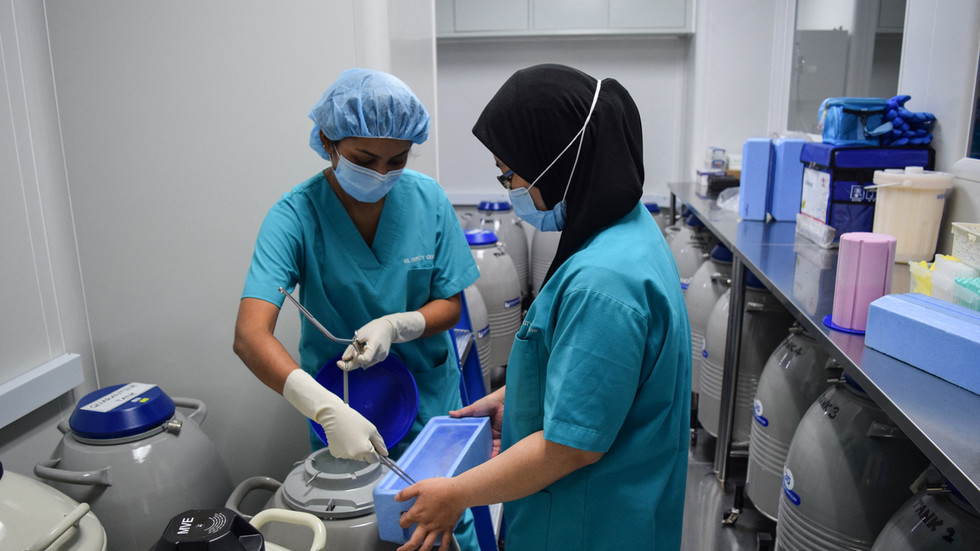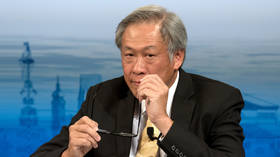
The age limit for women seeking to freeze their eggs will be 37, rather than the initially announced 35

FILE PHOTO © AFP / Sam Reeves
Singapore has further relaxed its restrictions on women freezing their eggs, raising the age cap for the procedure from 35 to 37, the Ministry of Health and Ministry of Social and Family Development announced on Monday, with the new regulations set to take effect in July.
The move comes as Singapore’s birth rate has dropped to just 1.05 babies per woman, the lowest ever recorded for the city-state since it began keeping track over six decades ago. The replacement fertility rate – the number of babies needed to maintain a population at a constant level – is 2.1 births per woman. At the same time, the median age of first-time motherhood in Singapore has jumped from 30.3 in 2013 to 31 in 2020.
The government explained that its decision was informed by international and local evidence showing the success rate of the procedure for women up to 37 years old to be “relatively stable” and claimed to have taken into account the desire of women to extend their fertile years due to “personal circumstances,” such as not being able to find a suitable partner.
The new rules will apply to both women seeking to freeze their eggs and egg donors. Only legally married couples may use their eggs to procreate.

Read more
Singapore only began allowing single women to freeze their eggs for non-medical reasons last year, opening the door to women aged 21 to 35 who wanted to preserve their eggs until they were legally married to do so. Women hoping to raise children outside of marriage or in same-sex relationships cannot legally freeze their eggs.
Previously, the procedure was restricted to women suffering from medical conditions that impacted their fertility, such as ovarian cancer.
The continued loosening of the restrictions surrounding the procedure is part of a multi-pronged effort by the government to encourage residents to have more babies. In addition to a “baby bonus” providing eligible parents with up to S$10,000 ($7,330) in benefits, Singapore has since late 2020 enticed young couples with one-off cash gifts and increased paternity leave in the hope of counteracting the financial pressure of the Covid-19 pandemic.
Singapore is far from alone in the region in facing a demographic crisis, however. South Korea has the lowest fertility rate in the world, with just 0.78 births per woman, and Japan’s problems with an aging population threatening to overwhelm the working population led its own government to experiment with robotic caretakers, with markedly underwhelming results.




